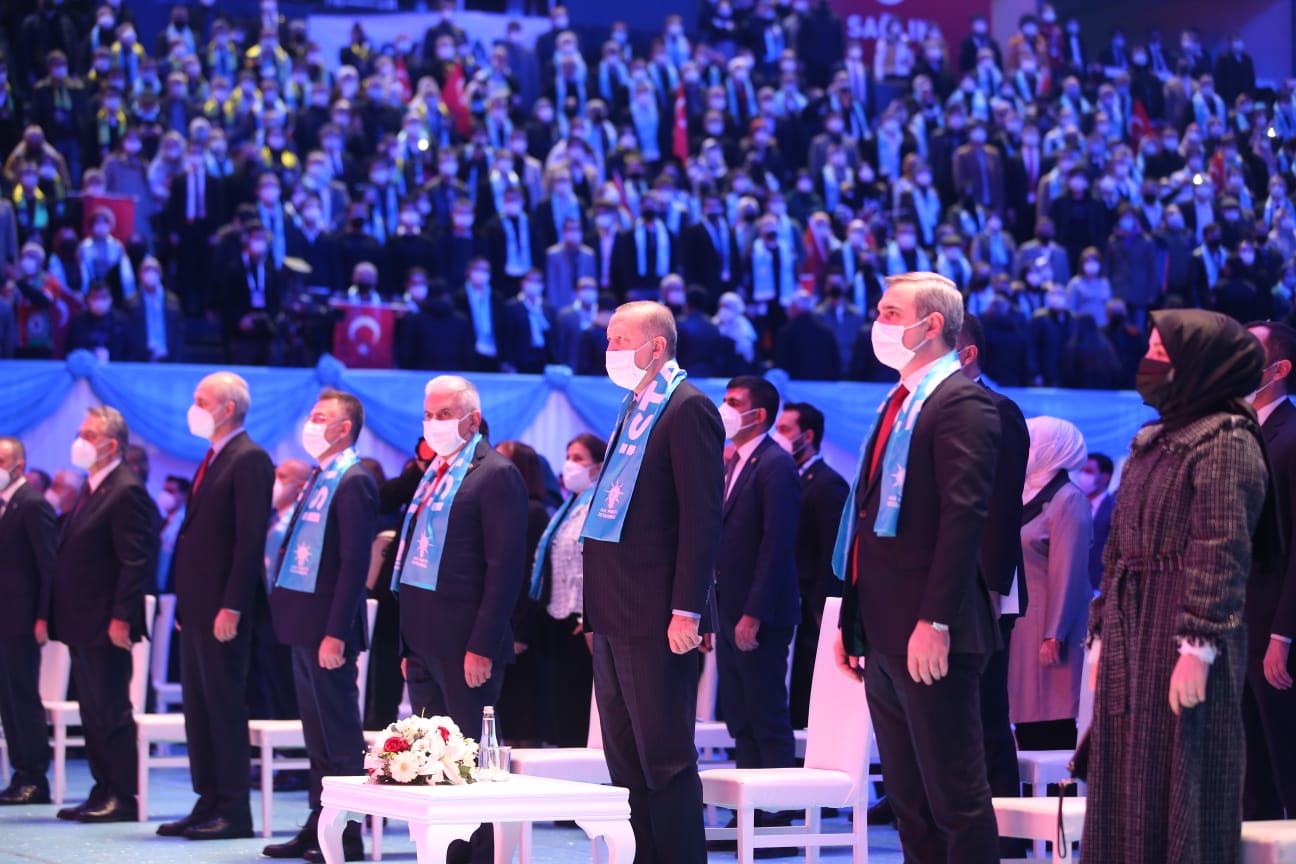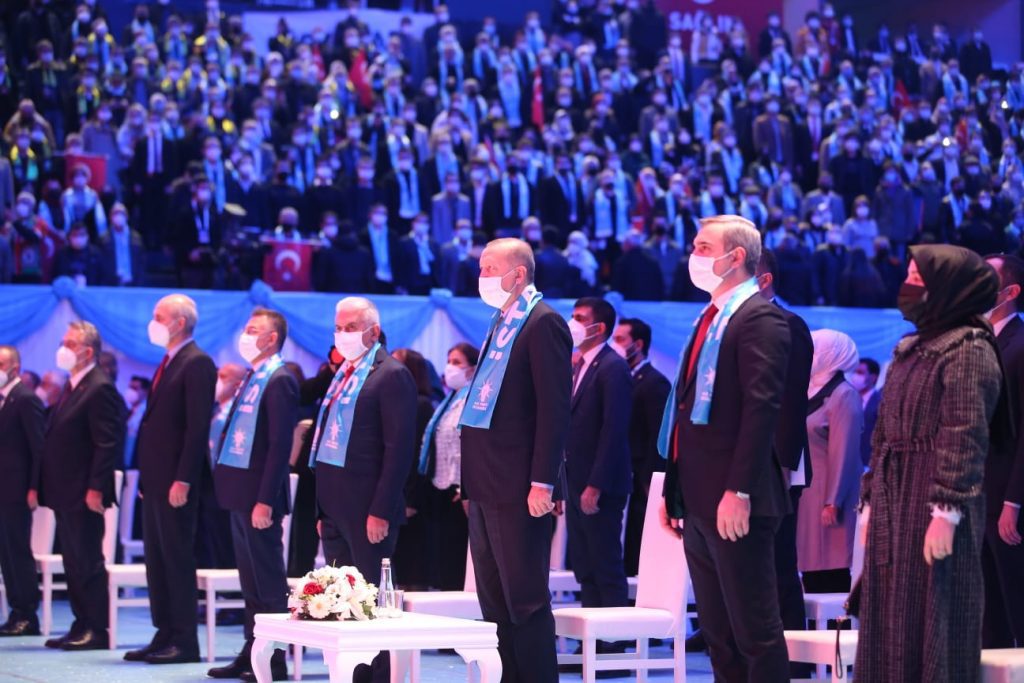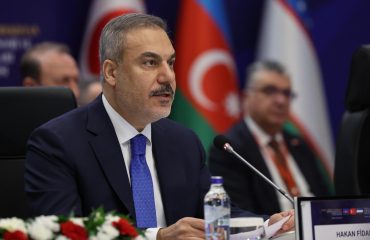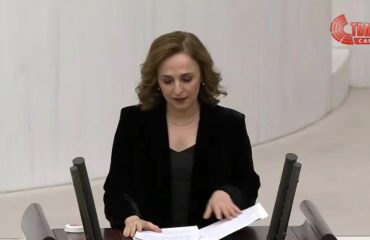

If political parties, especially those in power, feel the need to take a defensive position on more issues, it points out that something is wrong not only in the country’s conditions but also within the party.
The ruling Justice and Development Party (AKP) delegates in Istanbul elected Osman Nuri Kabaktepe as the provincial head on Feb. 25 at a congress held despite the measures against the pandemic.
Many commentators drew attention to the fact that outgoing Bayram Şenocak was close to Berat Albayrak, Erdoğan’s son-in-law who resigned as the Treasury and Finance Minister in November last year, while Kabaktepe is from Mili Görüş, the grassroots movement of the AKP.
The AKP was founded in 2001 by a group of Welfare Party (Refah Partisi) dissidents, including Erdoğan. Milli Görüş (the National View) is the grassroots of Necmettin Erbakan’s Welfare Party.
In his speech at the Istanbul congress, Erdoğan emphasized the “Spirit of 1994,” which refers to the pre-AKP era, when Erdoğan was elected the Welfare Party Istanbul chair and Istanbul mayor.
Defensive signs of transition
Two years after the local elections that the AKP party lost the Istanbul mayor seat to the main opposition, Erdoğan finally admitted that his party branch did wrong. This was a defensive measure, just like the reference to the “Spirit of 1994.”
And it was one of the signs that the AKP was in a defensive position for the first time in 20 years after its establishment and 19 years after it came to power.
On the same day, Health Fahrettin Koca exemplified a self-criticism rarely seen in Turkish politics, saying that it was a mistake for him to attend the funeral of Islamic cleric Muhammed Emin Saraç in Istanbul, a ceremony that gathered thousands on Feb. 21. The measures against the pandemic were ignored and the minister was among the figures to set good examples for the society, just like President Erdoğan.
Let’s not consider his self-criticism as a transition to a fully defensive position, but a requirement of political ethics.
However, on the same day, while commenting on main opposition Republican People’s Party (CHP) leader Kemal Kılıçdaroğlu’s repeated questions on the $128 billion of treasury money spent to ease the U.S. dollars’ rally against the Turkish Lira last year, Erdığan admitted that state money was spent to defend the local currency. He did not mention any amount, but CHP spokesperson Faik Öztrak said “Now that he admitted that the money was spent, he should explain how much U.S. dollars was sold to whom.”
Wasting energy in a defensive position
The Central Bank reserves were sold last year to keep both the value of the greenback below 7 liras per dollar and the interest rates at around 7 to 8 percent. But this policy did not work, the lira fell below 8.5 per dollar at the time when Albayrak resigned. When the Central Bank increased the interest rate to 17 percent, the lira gained, trading at around 7 liras per dollar.
The second that Erdoğan recently praised Albayrak, claiming that “he was successful as a minister but targeted because he is my son-in-law,” the dollar started climbing against the lira. This was of course also linked to rumors that Albayrak would return to the cabinet.
Why did Erdoğan feel the need to take a defensive position when the matter was about his son-in-law? If only he ignored criticism about Albayrak, he would not raise questions among the foreign investors who ask, “Albayrak again? Then are we deceived by the reform pledge?” and he would also not justify the CHP’s thesis.
Right after these, Treasury and Finance Minister Lütfi Elvan said “the President will announce the reforms in the second week of March.” Isn’t that a defensive position?
Questions on Gara operation
It was also noteworthy that Erdoğan assigned two ministers to brief two opposition parties after the Gara operation against the PKK in Iraq on Feb. 10, during which three soldiers and 13 civilians held by the outlawed PKK were killed.
The operation was under the command of Defense Minister Hulusi Akar. Even the Chief of General Staff, Yaşar Güler, could not be held responsible since he is no longer authorized to give orders to the force commanders. Was Interior Minister Süleyman Soylu there, briefing the opposition along with Akar, just because the gendarmerie commandos also participated in the operation? Then, for example, shouldn’t National Intelligence Organization (MİT) chief Hakan Fidan, who provided intelligence – and who works under the President – also be there? Were the two ministers sent to the opposition leaders to deplete the responsibility of the operation that -unfortunately- did not end with the good news that Erdoğan had promised to announce?
Erdoğan was also very angry with the five questions that CHP leader Kmal Kılıçdaroğlu asked about the Gara operation and his accusation that “Erdoğan is responsible.”
“He’s trying to put the blame on me,” Erdoğan said. The focus then suddenly turned to the issue of lifting the immunity of Peoples’ Democratic Party (HDP) lawmakers on terrorism charges. But it is seen that Erdoğan is in a defensive position regarding the Gara operation, too. Because the Presidential Government System gives all executive responsibility to the President in any case.
We will keep observing.


